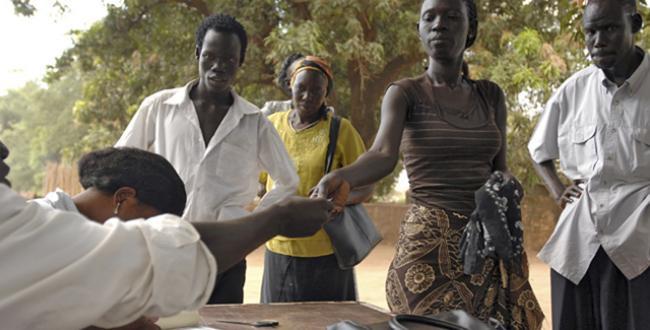Two decades. Two million deaths. One referendum.
Beginning in 1983, Northern and Southern Sudan underwent a civil war that persisted for two decades. Many Sudanese found their childhoods uprooted during these tumultuous years.
“I saw my home burned down,” said Emmanuel Jal in an interview with CNN. Jal, now 31 and a successful hip-hop artist, was a child soldier at age seven with the Sudan People’s Liberation Army. “At the age of five I saw my aunt raped in front of me. All my aunties died in the war, including my mum. All my uncles died in the war, except two. I saw my mother beaten in front of me and racially abused.”
Originally, Jal did not “think twice” about joining the army.
“I wanted revenge for my family,” said Jal. “I wanted to know who killed my mother.”
Today, he recalls the horrifying details of his early adolescence.
“The most difficult thing was that you didn’t know when you were going to die,” Jal reminisced. “For me, my biggest fear was being injured. I didn’t want to get shot in the eye or the leg or any other place that would leave me disabled.”
When he was 12, Jal and 400 other soldiers escaped to Waat. Due to obstacles during their travels, ranging from minefields to starvation, only 12 others survived, reports CNN. It was in Waat where Jal met a British air worker, Emma McCune. McCune successfully smuggled Jal to Kenya, where he was able to receive an education and fell in love with music. During these years, however, the Sudanese civil war continued.
In 2005, a peace agreement was signed that ended the war. One of the stipulations of the agreement was that a referendum take place to potentially secede Southern Sudan from its northern counterpart.
According to Voice of America, in a preliminary count, 99 percent wanted to declare Southern Sudan’s independence.
“I voted for separation because I want to be a first-class citizen in my own country,” explained Jal.
“You have a government that declared jihad against the people of Southern Sudan and has set up a system based on wrong foundations,” Jal told CNN. “A first-class citizen is a Muslim Arab and a second-class citizen is his wife, a third-class citizen is an African who has converted to Islam and a fourth-class citizen is his wife. A fifth-class citizen is a non-believer and a sixth-class citizen is his wife.”
If the preliminary results turn out to be supported by the final tallies, Southern Sudan will declare its official independence on July 9, reports BBC News.
Southern Sudan will not have an easy road if they do gain independence, reports CNN. There will be discussions over the oil reserves — the majority reside in Southern Sudan — as well as the national debt and how much the new nation should take on.
Despite these debates, voters arrived as early as 4:30 a.m. on January 9, CNN reveals.
“I had to come early,” Mary Dennis tells CNN. “This is a vote for our country.”
“I am on a mission,” John Baptiste, resident of Southern Sudan, told CNN. “My mission is to vote. We have waited 50 years, and we want to be separate. We have planned for many days to be here first.”

